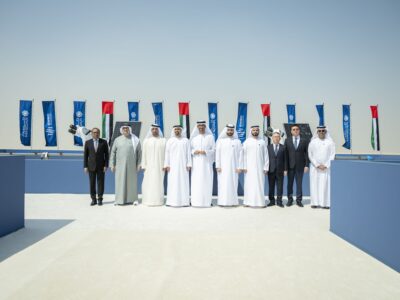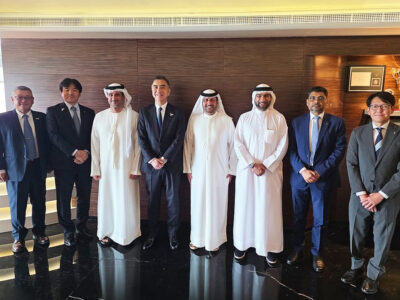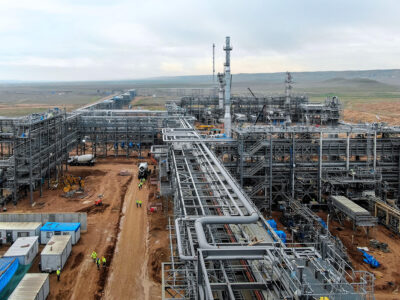The UAE’s green energy and green housing segments are the new targets of NFT (non fungible token) players, with leading blockchain ventures such as Qlindo betting on the country with aggressive expansion plans.
Long-term policy initiatives with milestone targets to cut carbon emissions and promote renewable energy are major factors luring NFT players in the ‘green’ sectors to the UAE – billed as one of the biggest construction capitals in the world.
“To me that sounds like the perfect market fit for Qlindo” Farbod Sadeghian, founder of Qlindo, told Arabian Business.
“Among the numerous methods for determining whether a building is truly green, certification, measurement and control play a significant role.
“And here, the DLT (Distributed Ledger Technology) – best known as blockchain technology – has clear advantages, and decentralization can generally mean new financing and incentive models for building greener houses if done correctly. Qlindo is doing exactly that,” Sadeghian said.
Sadeghian said Qlindo’s move to enter the UAE market is based on its conviction that the UAE and the larger GCC markets have huge growth potentials in the green energy and green real estate segments.
“Our current primary markets are the US and Europe – and the finest and greenest buildings there – but we long for the UAE – GCC region. Which is why we are expanding there in our globalizing initiative,” he said.
Industry experts said more blockchain ventures were eyeing the growing green real estate and green energy segments in the UAE and the region because of the policy initiatives and their strict implementation by the authorities.
They, however, did not disclose names of the ventures as they were still in the process of finalising their entry plans
The UAE is home to some of the world’s most sustainable projects in renewable energy and green real estate, with the country setting a zero emission target by 2050.
Sadeghian said the market potential of green real estate is, without doubt, one of the biggest within the industry.
“There is no question that we have to change our way of construction, as it is estimated that the construction industry accounts for 40-50 percent of the world’s carbon emissions. That’s more than double all transport emissions combined, which is why a change in this industry is necessary,” he said.
The Qlindo founder said blockchains can assist in the implementation of optimal solutions for construction of future houses that will put people and their well-being first.
“The team of specialists at Qlindo is always on the lookout for new technologies that could benefit our projects and change the world,” he said.
Qlindo’s international network of specialists identify the most profitable and sustainable projects for its investors.
Besides, the NFT venture’s token holders get exclusive access and discounts to the projects, and also to its networking events with top industry leaders.
“It’s like investing in a property and getting your own real estate consultant with the investment,” Sadeghian said.
Sadeghian said Qlindo invests in green energy and housing projects through its NFT community and token holders.
The venture also enters as co-investors along with other investors in some of the projects.
One of the companies Qlindo has invested in is Techwood Homes, which built a completely plastic-free house made from renewable sources for the same price as an average home that is made from environmentally impacting materials.
Sadeghian said the green energy market in the UAE and the Middle East was as big as the real estate market itself.
“The big misunderstanding is that ‘renewable or green’ energy is often considered more expensive. Where, in fact, quite the opposite is the case,” he said.
Sadeghian also revealed that the venture was looking to raise funds for its proposed investment plans in the two segments.
“To comply with our vision to revolutionize the real estate construction industry, a massive amount of capital is needed in the long term. Therefore, we are always on the lookout for capital partners,” he said.








